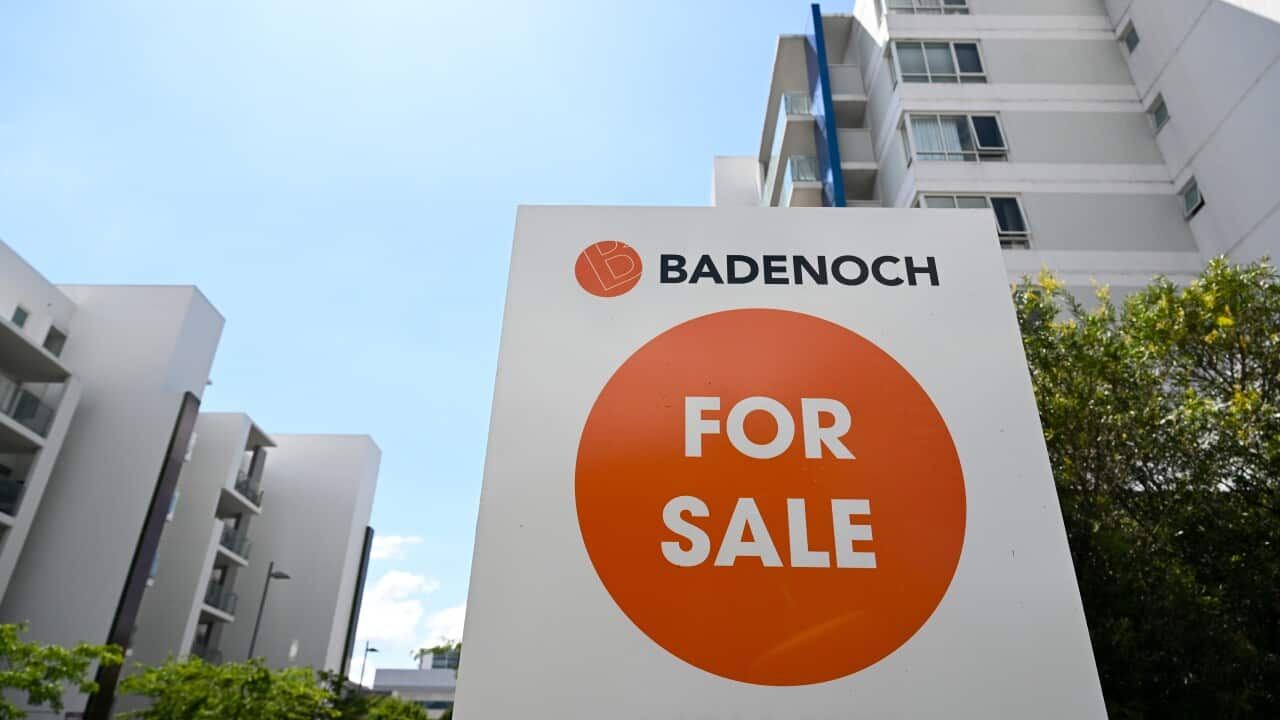TRANSCRIPT
Couch surfing for months at a time, moving back in with the parents and stuck in share housing well into your mid forties.
These are just some of the scenarios thousands are facing as Australia grapples with its worst housing crisis on record.
Everybody's Home - a national campaign seeking to fix the crisis - is launching a new independent inquiry, called the People's Commission into the Housing Crisis, which is set to hear from community members - including renters, people with crippling mortgages and homelessness services.
The campaign's spokeswoman Maiy Azize says the Commission will be held in May, over a period of at least two days, and comes at a pivotal moment.
"Australia is in the midst of the worst housing crisis that we've ever had. We've got hundreds and hundreds of thousands of households across the country in the most severe rental stress. There's 640,000 households who are not just in rental stress, but the most severe, dire rental stress that really puts them at risk of becoming homeless. We've got median house prices in major cities like Sydney, so expensive, that you actually need to be on an income over $200,000 to get a loan. And we've got rents that have surged asking rents that have surged by 75 per cent since we started the pandemic. So this is truly a crisis."
Several parliamentary, state and territory government inquiries have been held in the past.
Ms Azize says what sets theirs apart, is that it will showcase the experiences of everyday people who have been harmed by the crisis.
"What we see is that when parliament has inquiries and when state and territory governments have inquiries, they go to organisations, they go to academics, and all of that is great and really important; we need to be hearing from those people. But what they don't do is hear from the average Australians who are affected by the crisis. We've already heard from hundreds of people who've put in submissions to our people's commission. And we're looking forward to showcasing their stories and their experiences, because they're the ones who are really able to tell us what it's like on the front line."
Former Labor Senator for New South Wales Doug Cameron, will serve as co-commissioner to the inquiry alongside University of Sydney housing expert Professor Nicole Gurran.
Mr Cameron says housing is a basic necessity.
"It should be treated as important infrastructure. It shouldn't be treated as simply an area for wealth creation for those who can buy into the housing market. And this is a huge problem. And unless we deal with it, we are gonna have people trying to enter a failed housing market. And when the market, apparently, according to neoliberal policies, when the market fails, there should be government intervention. I don't think there's been enough government intervention. I don't think there's been enough focus on public housing. I don't think there's been enough focus on social housing to make sure that we can turn around what is a great crisis in housing and make sure that people have access to a decent life through a decent, secure home."
Everybody's Home is writing to Housing and Social Service Ministers, inviting them to take part in the process.
Spokeswoman Maiy Azize says they are calling on the government to take two key actions.
"The first thing we need them to do is really step up and start supplying housing itself. Back when housing was affordable in Australia, about one in three people who rented, rented from the government and about one in four new bills that was going up was being built by the government. Now it is an absolute fraction of that. The vast majority of people have got a private landlord. Housing is just be more and more expensive and government is pulling back more and more. That needs to change ... The other thing we need to see them do is wind back some of these tax handouts for hobby landlords and small time investors. We know that that is pushing up the cost of housing, but it also means that the government is spending the most money on people during this crisis who really don't need the help."
So, how did we get here?
University of New South Wales Professor Hal Pawson says Australians are still living through a big disturbance in the housing market, triggered largely by the COVID-19 pandemic.
"The cost of a home has gone up 50 per cent in the last four years, which is really-- even in Australia where house price inflation is quite high for periods, that's quite a high level. But even more surprising, I think, or more striking is that rents have also risen by around 50 per cent since March 2020, or the beginning of COVID. And that's putting a lot of people under pressure."
Professor Pawson says rental conditions in Australia are trailing behind other parts of the world.
"Not just because they're perhaps, facing very high rent increases at the moment, but more fundamentally because the security of tenure in the private rental sector is really quite limited in Australia. It has been improving in some states in the last two or three years because a number of states have been looking at this and have recognised that there's a need to update their residential tenancy legislation and what that the main components of that is ending the possibility of a landlord, ending a tenancy without any cause to do so."
This is known as a no grounds eviction: when a landlord decides to end a tenancy without needing to give any reason for doing so.
Several states have introduced reforms to the Residential Tenancies Act, requiring landlords to give a reason for ending a tenancy and only agreeing to the tenancy ending for what is deemed an acceptable reason.
Professor Pawson says reducing the range of circumstances in which landlords are able to end a tenancy provides more security for renters.
"And several Australian states have been, have moved in that direction. Victoria in particular, they brought in their new regime in 2021. New South Wales had a change of government in 2023, and the new government when it came in had a commitment to make a similar change. And that is-- that has yet to happen, but I believe there is still expectation that that will happen, that there will be an improvement in security of tenure for renters in the private sector that comes out of that."
But, with many Australians still feeling the pinch, Professor Pawson says what's really needed is an increase in the supply of affordable rental housing for low income earners, which he says is long overdue.
"And that is something which again is beginning to happen through the Housing Australia future fund the federal government's social housing and social and affordable housing investments initiative. So that is getting underway at the moment, but it will take some time to come into effect. And even then it's too little (laughs). It needs to be, it needs to be both extended and expanded, I think to really meet the chat the size of the challenge, which exists."













